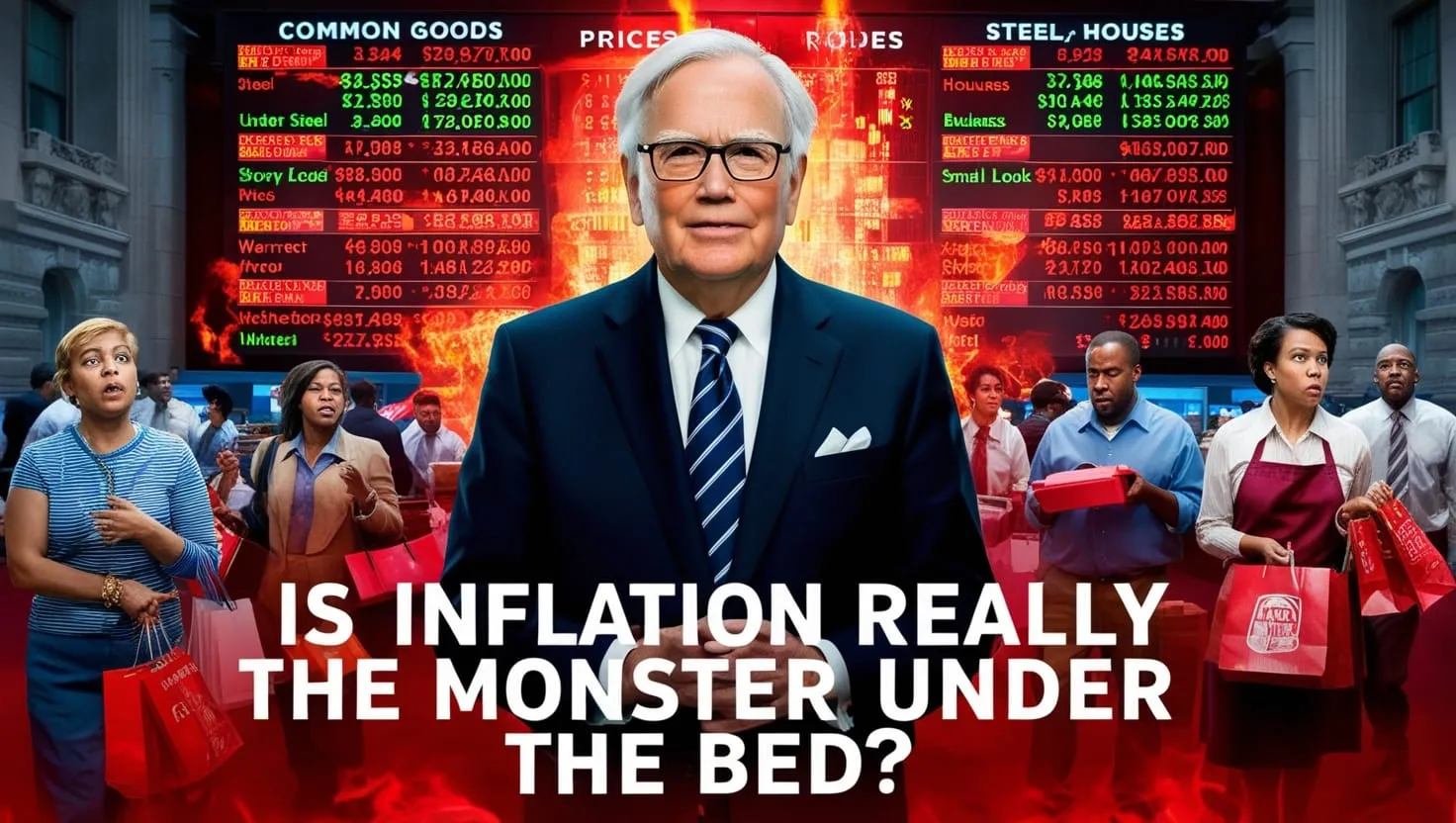Are we on the verge of something worse than a recession? Warren Buffett seems to think so. Let's dive into his warnings and figure out what he's really saying about our economic future.
Right now, the economy is experiencing significant inflation. Prices are rising everywhere—whether it's steel, housing, or even your favorite snacks. It's not just a trickle; it's a flood of price hikes, and businesses are scrambling to keep up. Buffett's got his finger on the pulse of this trend through his vast array of companies, from home builders to furniture stores. Despite initial expectations that consumer spending would drop once stimulus checks ended, people kept spending. They’re paying higher prices and often don't mind waiting for delayed deliveries.
So, what’s fueling this red-hot economy? It’s a mix of pent-up demand and substantial government stimulus. And while consumers are happy with the extra cash, it’s creating a backlog in supply chains, pushing prices higher and higher. It’s a buying frenzy, especially in sectors that aren't fully operational yet, like international travel.
However, it’s not all sunshine and rainbows. Small businesses, especially those reliant on in-person services, are struggling. Dry cleaners and small local restaurants without takeout options have faced devastating losses. On the other hand, those that adapted, like Dairy Queen with its takeout service, are thriving.
Buffett notes that inflation isn’t just a fleeting concern. It's a longer-term issue that’s bound to surface because of current fiscal and monetary policies. The U.S. is borrowing heavily, and while that might seem like a short-term fix, it often leads to paying back loans with devalued dollars—a classic inflationary tactic.
Interestingly, Buffett points out that while taxpayers are frequently cited as funding various government expenses, the real burden might fall on future generations and foreign investors holding U.S. debt. This hidden tax reduces the real value of their investments over time. The key takeaway? Inflation is a sneaky, almost invisible tax on those who trust in the stability of the dollar.
So, how can you protect yourself? Buffett has two main pieces of advice. First, invest in yourself. Enhance your skills and talents—become irreplaceable in your field. Whether you’re a brain surgeon, teacher, or journalist, your personal earning power is the best hedge against inflation. Second, invest in high-quality businesses that don’t require massive capital investment. Companies with strong brands, like Coca-Cola, can maintain their value and command a consistent portion of consumers' money, regardless of inflation.
Stocks are currently cheap if you discount them against present interest rates, which are historically low. But the question remains: What will interest rates do in the future? The current economic policies are unprecedented, shoveling money into the economy while maintaining low interest rates. It's a fascinating scenario, with pleasant short-term effects but potential long-term consequences. As Buffett puts it, in economics, there’s always the question of "And then what?"
The massive stimulus packages have boosted consumer confidence and spending. However, the long-term impacts are still unknown. It’s a movie we've never seen before, and professional economists are scratching their heads, finding their predictions upended by the complexity of the real world.
Inflation isn't new. The dollar's value has dropped significantly since Buffett was born. However, despite this "cruel tax" on fixed-dollar assets, investing in personal skills and good businesses has historically provided a reliable defense. Maximizing your talents and finding work that you love is essential. As Buffett advises, don’t sleepwalk through life. Find your passion, and pursue it relentlessly. You’ll make mistakes, but that’s part of the journey. The biggest regrets often come from missed opportunities rather than failed attempts.
In investing, clarity about what you understand is crucial. Buffett’s "circle of competence" concept emphasizes investing only in what you truly understand. This approach has kept him out of tech stocks despite recognizing their potential, simply because he couldn't predict the winners. Instead, he focuses on businesses with predictable economic characteristics, like chewing gum or soft drinks.
Finally, Buffett stresses the importance of relationships. Surround yourself with people you admire and trust, especially in your personal life. The happiness and success of those around you, particularly your family, are the true measures of a fulfilling life.
So, is inflation the monster under the bed? Maybe. But with Buffett's advice, you can face it head-on. Invest in yourself, understand your strengths, and maintain meaningful relationships. The future might be uncertain, but you have the tools to navigate whatever comes next.






